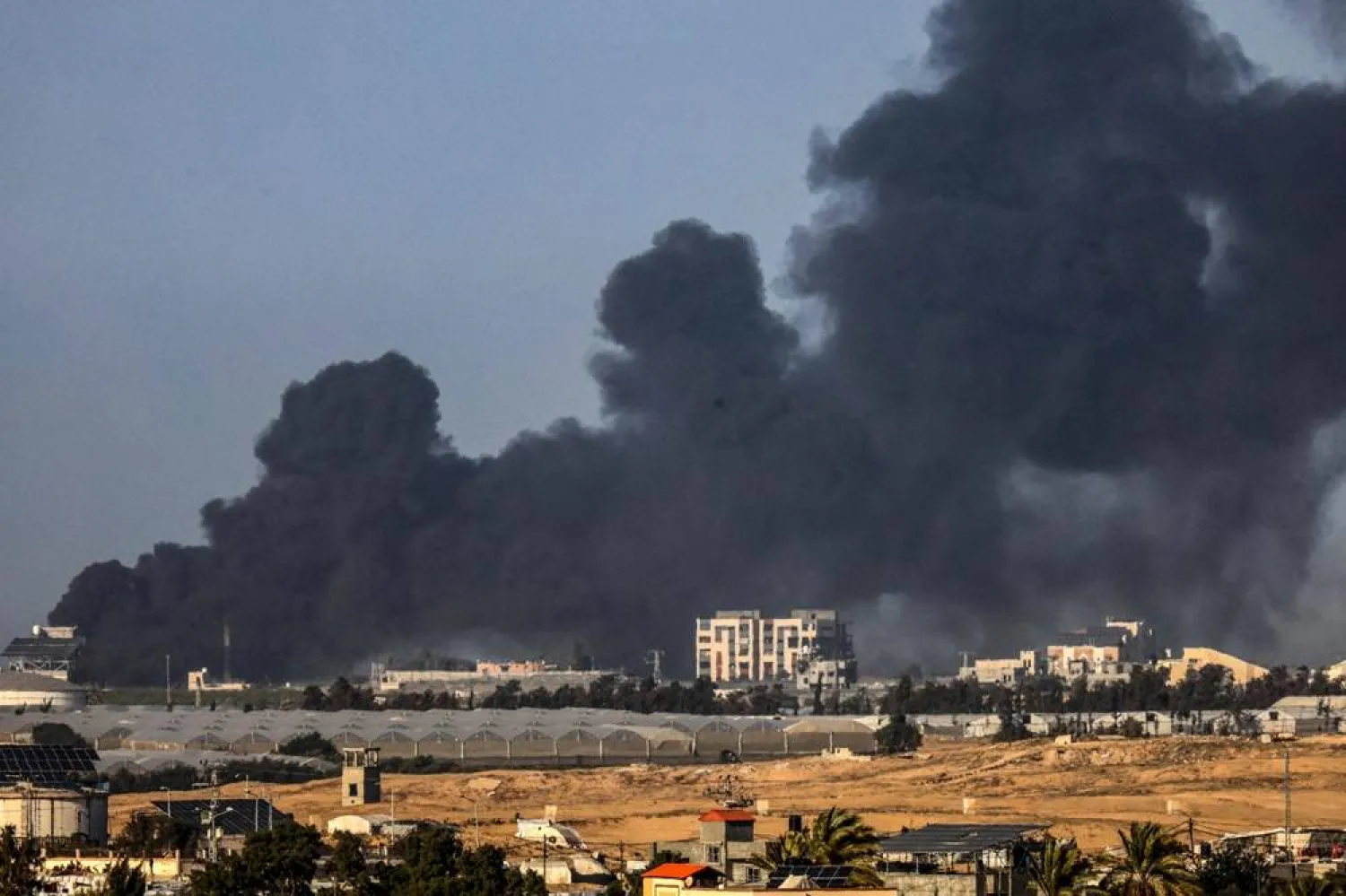European Union foreign ministers argued Monday that the creation of a Palestinian state is the only credible way to achieve peace in the Middle East, and they expressed concern about Israeli Prime Minister Benjamin Netanyahu’s clear rejection of the idea.
“The declarations of Benjamin Netanyahu are worrying. There will be a need for a Palestinian state with security guarantees for all,” French Foreign Affairs Minister Stephane Sejourne told reporters in Brussels, where ministers met to discuss the war in Gaza.
Israeli Foreign Minister Israel Katz and Palestinian counterpart Riad Malki also were in Belgium's capital for the talks. The issue of Gaza’s future has set Israel in opposition to the United States and its Arab allies as well as they work to mediate an end to the fighting in the besieged Palestinian territory.
The Palestinian death toll from the war between Israel and Hamas has surpassed 25,000, according to the Health Ministry in Gaza. Israel said Sunday that another of the hostages taken during the Oct. 7 attack that triggered the war had died.
The EU is the world’s top provider of aid to the Palestinians but holds little leverage over Israel, despite being its biggest trading partner. The 27 member countries are also deeply divided in their approach. But as the death toll in Gaza mounts, so do calls for a halt to the fighting.
“Gaza is in a situation of extreme urgency. There is a risk of famine. There is a risk of epidemics. The violence must stop,” said Belgian Foreign Minister Hadja Lahbib, whose country holds the EU’s rotating presidency.
“We demand an immediate ceasefire, the release of the hostages, the respect of international law (and) a return to the peace process, which must lead to the creation of two states living in peace side by side,” Lahbib said, describing a two-state solution as “the only way to establish peace in a durable way in the region.”
Israel appears far from achieving its goals of crushing Hamas and freeing the more than 100 remaining hostages. But Netanyahu rejects Palestinian statehood and seeks open-ended military control over Gaza.
The dispute over the territory’s future — with no end in sight to the war — poses a major obstacle to any plans for postwar governance or reconstruction.
The EU invited the foreign ministers of Israel, the Palestinians, Egypt, Jordan and a representative of the Arab League to take part in Monday's talks. The ministers for Israel and the Palestinians were not due to meet each other.
The European ministers wanted to hear about Israel's plans for the future.
“Which are the other solutions they have in mind?” asked EU foreign policy chief Josep Borrell, who chaired the meeting. “To make all the Palestinians leave? To kill off them?”
Borrell condemned what he described as the atrocities committed by Hamas, but added that Israeli military actions “are seeding the hate for generations.”
The Palestinian minister said a ceasefire is the most urgent need.
“We have to call collectively for a ceasefire. We cannot accept anything less,” Malki said.
He also called on the EU “to start contemplating sanctions against Netanyahu and others who are really destroying the chances for a two state-solution and for peace in the Middle East.”
Spain has pushed for a peace conference on what might happen once the fighting is over. A future meeting in Brussels is in the works, but the timing remains unclear. The plan has the backing of some EU member countries, but others say it can only happen with Israel’s support.
“If Israel is not (at) the table, there is no use to have peace conferences,” Luxembourg Foreign Minister Xavier Bettel said. He does not believe Israel will be ready for talks as long as it believes that Hamas poses a danger.
The Israeli minister refused to respond when asked about the possibility of Palestinian statehood. Holding up pictures of Israeli hostages, he said he had come to seek support for Israel’s campaign to dismantle Hamas.
“We have to bring back our security. Our brave soldiers are fighting in very hard conditions,” he told reporters. The Israeli government's aims, Katz said, are clear: “to bring back our hostages and restore security for the citizens of Israel.”
With regional tensions flaring, the ministers also discussed a planned EU naval mission to help ensure maritime traffic security in the Red Sea, a major trade route. Belgium has committed to send a frigate, and Germany could do the same. Italy also is willing to take part.
For months, Yemen's Houthi militias have attacked ships in the Red Sea and the Gulf of Aden that they say are linked to Israel or heading to Israeli ports. US airstrikes have hit sites of the Iranian-backed Houthis seven times, according to US officials. UK forces participated in some strikes.









